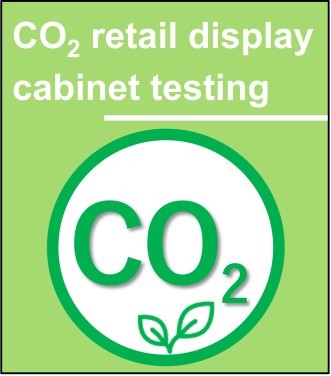CO2 retail display cabinet testing

As we reported in our March 22 newsletter we now have the capability to test retail display cabinets operating on CO2 (R744).
Since installing the new refrigeration plant we have been busy with testing a range of cabinets. Recently we have been involved in a large trial for Aldi to compare cabinet performance to datasheets provided for the models selected as part of a large tendering exercise. The trial is managed by Wave Refrigeration who use the results we generate to compare performance of the cabinets and advise Aldi on the lowest carbon opportunities for the Aldi estate.
The trial that Aldi is carrying out compares the performance of similar cabinets from a range of manufacturers and aims to identify the best performing remotely operated cabinets operating on CO2.
The results will enable Aldi to identify which cabinets they purchase over the next few years and to compare the energy used by the cabinets to justify the purchasing decisions ultimately made.
Trials, such as the one caried out by Aldi, to independently compare the performance of cabinets provides extensive information that means performance of cabinets can be compared directly. All cabinets are tested to exactly the same specification and so results are directly comparable. In addition to the temperature performance and energy consumption measured as part of the testing there is often additional information generated on the build quality and operation of cabinets which can be useful when making final decisions on which cabinets to purchase.
The uptake of CO2 as a refrigerant is growing rapidly. With increased efficiency of systems and the drive to reduce the use of greenhouse gasses (the global warming potential of CO2 is thousands of times lower than traditional HFC refrigerants) many supermarkets are transitioning to CO2 systems. Europe has led the world in the installation of transcritical CO2 system in supermarkets. Installations are now estimated to be 40,000 (Atmosphere, 2022) from 29,000 in 2020. Similar levels of increase in systems installed have also been seen in the US and Japan indicating the ongoing move to natural refrigerants by supermarkets internationally. We are now seeing a major part of our testing work being with natural refrigerants, in particular, CO2 for large remote systems and hydrocarbons for smaller integral systems. Both are now being increasingly seen as long term sustainable options for retailers and so it seems likely that uptake will continue to increase.
If you would like further information on testing retail cabinets using CO2, please contact Judith Evans at RD&T (j.a.evans@rdandt.co.uk).